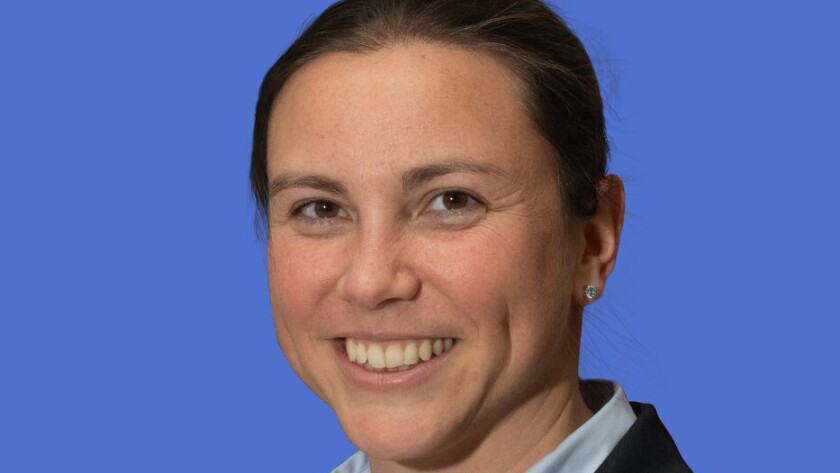The project – involving the European Union (EU) and the European Space Agency (ESA) – is designed to launch the Eagle-1 satellite at the heart of an end-to-end system for secure quantum key distribution (QKD).
Élodie Viau (pictured), director of telecommunications and integrated applications at the ESA, said: “In today’s increasingly interconnected world, keeping information secure is paramount. Robust encryption keys as well as technologies enabling their secure distribution are vital to this endeavour.”
SES will build the first sovereign European end-to-end space-based QKD system, developing and operating a dedicated low Earth orbit (LEO) satellite and building a state-of-the-art QKD operations centre in Luxembourg.
The project is co-funded by the ESA contribution of Germany, Luxembourg, Austria, Italy, the Netherlands, Switzerland, Belgium and the Czech Republic under Artes, ESA’s long-running, large-scale programme to support the development of advanced satcom products and services, as well as by the European Commission through its Horizon Europe project.
Eagle-1 appears to compete directly with Arqit Quantum, a US-quoted company founded by UK entrepreneur David Williams. Its shares, quoted on Nasdaq, peaked at US$37.88 in December 2021, but were $6.63 at yesterday’s close.
SES said the European Eagle-1 project will provide “valuable mission data for next generation quantum communication infrastructures (QCIs), contributing for example to the EU plans to deploy a sovereign, autonomous cross-border quantum secure communications networks”.
Steve Collar, CEO of SES, said: “European security and sovereignty in a future world of quantum computing is critical to the success of Europe and its member states.” He said the Eagle-1 system “is called to be a cornerstone for the development of secure and sovereign European networks of the future”.
Once launched in 2024, the Eagle-1 satellite is due to orbit for three years, to allow EU governments and institutions as well as critical business sectors early access to long-distance QKD. The aim is then to develop “an EU constellation enabling ultra-secure data transmissions”, said SES.
The SES-led consortium will develop the QKD payload, terrestrial optical station, scalable quantum operational networks and key management system to interface with national QCIs, the company said.
Josef Aschbacher, ESA director general, said: “European space innovation has gained strong momentum both from a technology perspective and in terms of commercialisation. It allows us to develop and implement next-generation, future-proof projects in space across critical domains like secure communication, next-generation networks and cybersecurity.”
He said: “Eagle-1 is a major step towards making the secure and scalable European quantum communications infrastructure a reality.”
Viau, who will be a keynote speaker at next month’s Capacity Europe conference in London, said: “ESA enables the European space industry to succeed by federating industry around large-scale programmes, achieving competitive leaps forward.”






